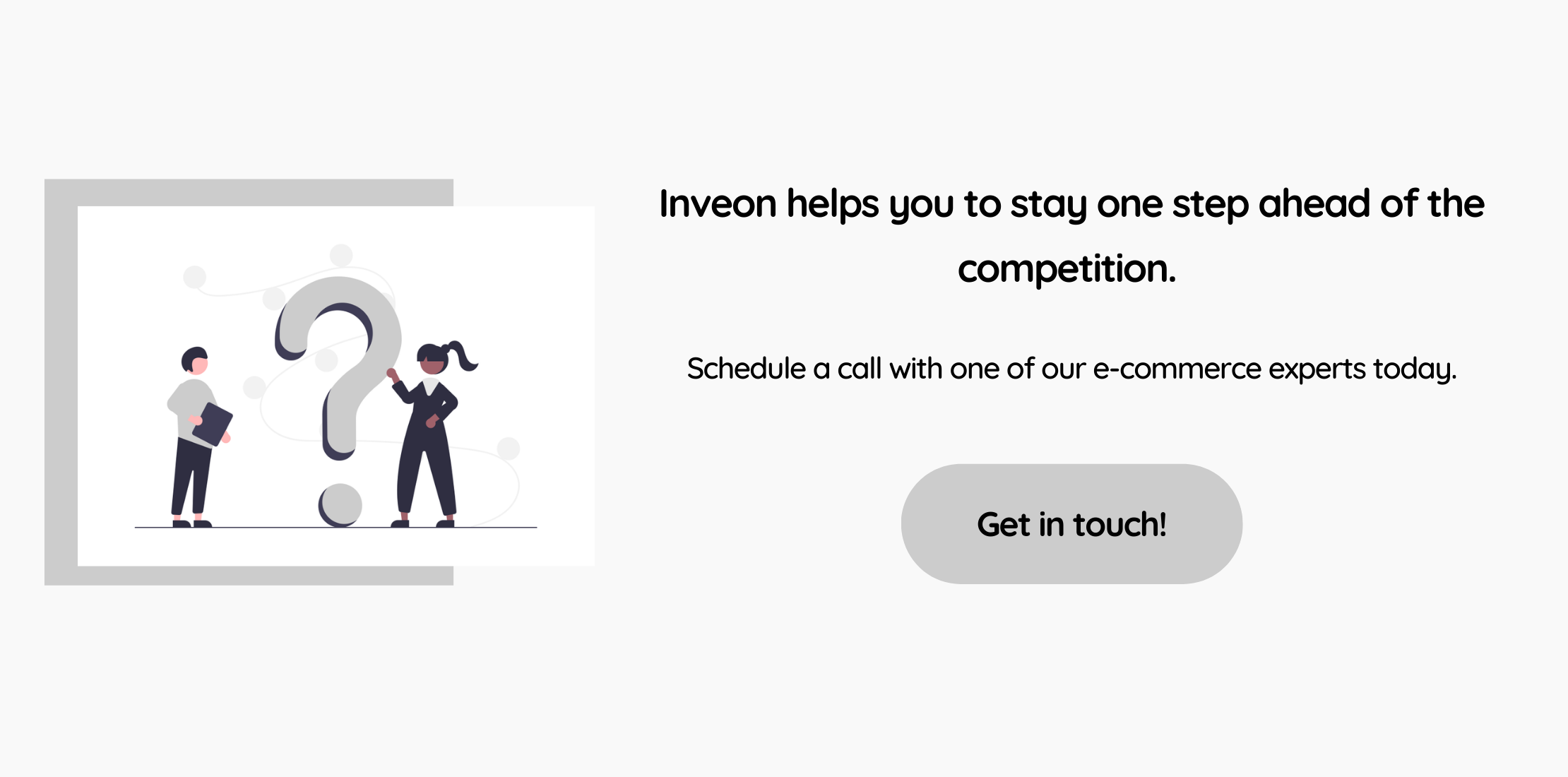

The B2B e-commerce market is one of the fastest-growing industries in the world. Business to business (B2B) in e-commerce is a growing market with a global value of 8,523 billion in 2021 and is projected to reach approximately $18,771 billion by 2027, with a CAGR of 14.1%. According to Gartner, the popularity of digital interactions between buyers and suppliers will overtake traditional sales models in the next five years. The report also estimates that by 2025, 80% of B2B sales interactions will occur on digital channels. It can be said that with the baby boomer generation leaving the scene and the Y generation becoming the decision-makers, digital-first approaches will be adopted more in sales.
With the evolution of digital B2B purchase processes, specifically since the emergence of the pandemic, more B2B purchasing activities are transitioning from offline to online channels. Even though this digitalization process began as an emergency solution, it seems to have evolved into the new normal, with significant effects on how buyers and sellers will do business in the long term.

A couple of years ago, businesses were having doubts about buying something online. Today, for most users, shopping online has benefits such as getting the product they want without having to wait in a queue, spending less time and energy, enjoying special promotions and of course, a more personalized experience. All these and many more are also valid for B2B purchasing decisions. Considering changes in the overall state of the world and consumer buying habits, B2B businesses have no option but to go online. With the global expansion and advanced provision of various services and products, B2B e-commerce is estimated to grow extremely in the coming years.

What are the unique needs of B2B operations?
As B2B merges with digital environments rapidly, the market is expanding along with it. In this competitive environment, the key to standing out for an e-commerce brand is to deliver the best experience possible. Furthermore, client preferences and opinions are continuously evolving. As a result, companies require a great plan specialized to the unique needs of B2B customers, to reach their target audience and drive sales. The B2B world has different market dynamics than businesses aiming solely at individual consumers. This reality has led e-commerce sellers to offer more than just their products online.

>> The challenge of B2B customer engagement
Contrary to the B2C business model, in the B2B world purchasing processes are much more intense and comprehensive. They require more interaction with the consumer in order to establish an environment of mutual trust. In addition, the bond with the customer should be much more strong and more committed. Having a digital presence is essential at this point since it saves time and energy while also creating a way to be accessible at any time. B2B decision-makers globally consider remote selling to be as effective as face-to-face interaction in communicating with consumers according to McKinsey analysis.

>> Personalized journeys & customized offerings
In the B2B industry, you may think that your customer is the business, but you should keep in mind that decision-makers are still individuals. And the online consumers' demand for personalization is continually rising. With the digital tools reaching maturity, B2B companies will increasingly focus on personalizing their services and processes to meet the growing demands from customers. For B2B businesses, this need for personalization is not limited to customer service and engagement; it also extends to the products and services offered.
Due to the nature of the B2B dynamics, the product and service offered may also need to be customized according to the unique needs of the clients’ businesses. Considering such situations, there is a need for a platform that can produce more robust and customized solutions, and strategies created with this understanding.

>> Specialized scenarios and advanced structure
In the B2B world, it might be necessary to answer particular needs, like handling high-volume orders, creating special invoice services, building unique campaign structures, according to the needs of the client’s operations. For cases like these, having a highly capable e-commerce platform comes to the fore. To allow your consumers to trust your brand, chosen e-commerce solution should offer various advanced features, strong integration capacities and a solid trusted structure

Benefits of E-commerce for B2B Businesses
According to a McKinsey report, only 20% of B2B consumers want to return to in-person sales. While consumers' growing expectations for robust and creative digital experiences can be daunting at times for retailers, the benefits of incorporating digital channels into commerce are immense. By connecting the elements of your physical stores to the consumer online, you can create rich experiences and get the data that you need for your market strategies.

Users may choose to switch from one device to another and multiple platforms while searching for the products, at this point, you could provide your customers with an omnichannel experience with a powerful e-commerce platform. Having an omnichannel strategy allows consumers to reach your brand whenever they need it, helping you deliver a more personalized and enhanced customer experience. Taking a multi-channel and customized approach will differentiate your brand from its competitors and will provide the advantage of reaching wider audiences, as well as increase the satisfaction and brand loyalty of your existing customers. With the more flexible environment that e-commerce will offer you, it will be possible to take advantage of all the opportunities in the market. Because you can obtain data such as consumers' shopping habits, previous purchases, and wishlists, you can offer superior services. Therefore, a series of mutual benefits can be provided for both your business and the consumer.
B2B E-commerce Use Case

As a good example of B2B's integration into e-commerce, let’s take the example of wholesale grocery brand Bizim Toptan. Bizim Toptan is Turkey's largest cash & carry player, with 174 stores and active in both B2B and B2C markets. They started working with Inveon in search of an infrastructure that could provide better service and meet their specific needs and chose Inveon's powerful and customizable e-commerce platform. The aim of this project was to create an advanced omnichannel structure that offers both B2C and B2B consumers a seamless shopping journey.
Our platform allowed the brand to have full control over the order, product inventory, and supply processes and to offer better service. Bizim Toptan now offers dynamic pricing to its B2B customers in different segments (more than 200 different groups) and provides omnichannel services such as in-store delivery through time slot selection. Especially for B2B customers, the needed dynamic campaign structures were also prepared. Currently, they have taken their place in the digital world with the e-commerce website and the application we have developed. By taking this step, they expanded their business networks and thus continued to increase their competitive advantage in the market. If you want to learn more details about our inspiring partnership, read the success case here.
Future of B2B E-commerce

As B2B retailers increasingly adopt digital approaches to create sustainable and effective strategies online, the growing digital workplace driven by new technology and data is creating excitement for future B2B e-commerce applications. It is undeniable that technologies benefiting artificial intelligence, augmented reality, or metaverse will change the rules in the market, as companies are utilizing technology to gain a competitive advantage. Innovation is so immense that businesses are now able to compete with one another without the restrictions of space or time.
As the e-commerce business evolves and continues to disrupt traditional retailing models, B2B businesses tend to follow trends started by B2C. B2B sales will continue to highly benefit from the development of hyper-personalized and omnichannel improvements.

With new technologies and strategies emerging at a rapid pace, the future of B2B e-commerce looks very promising. For greater efficiency, cost-effectiveness, and more competitive advantage, a strong online brand presence is essential. B2B businesses should focus on strategic moves that will help their business grow and reach more consumers, such as adapting to new systems, increasing their digital investments, creating a more user-centric experience, and being active on new sales points.
While it is not easy for a brand to focus on all these at the same time, discovering the incredible benefits that the e-commerce world has to offer is an opportunity not to be missed. Inveon’s enterprise e-commerce platform inCommerce can help your brand to deliver the best possible B2B digital experience that your customers deserve. While Inveon GrowthLab team, with talented experts, is also here to support you with a successful strategy building that increases growth. Contact us today to enjoy the world of e-commerce full of advantages.

